|
Showering off the smell of sunscreen and sweat, I trudged into my room to put on attire that would be somewhat presentable. I dumped my lemonade into a travel mug, tossed my hair into a ponytail, and grabbed my messenger bag. I inwardly whined and complained, dreading the next three hours.
The absolute last thing I wanted to be doing that beautiful summer night was going to a college class about literature and death. The dutiful student I was, however, I got in my car and sped toward the college, saying goodbye to the whimsical freedom typifying summer. I stomped into the class, my scowl matching that of several other students “stuck” taking a summer course. Adding a year of college to earn a second degree seemed like a wise plan—until I realized I’d have to take a summer class. I was a go-getter, a dedicated academic. I had a passion for literature and learning. But a class over the summer? No thanks. I’d rather be napping on the deck reading “smutty” literature or eating ice cream by the gallon. Essays, assigned readings, and quizzes were threatening to cramp my style. However, little did my immature twentysomething self know that class, “The Literature of Health and Healing,” would change everything. Over the course of the summer, Dr. Neff selected works fitting the theme of health and healing—but also death, as the course title was pretty misleading. We read Tuesdays with Morrie and watched Awakenings. We read poems about aging and about cancer. We talked about bucket lists, about dreams, about time. Dr. Neff emphasized the idea that humans think they have so much time, but it’s never promised. I realized how many things I’d been putting off and how naïve I’d been to think I had forever. And, to my surprise, something more magical than summer freedom happened. I got inspired. One night on the drive home from class, I got to thinking about my own bucket list. The number one item on my list was to write a novel, but I’d been putting it off. I had plenty of time. Plus, who did I think I was? What made me think I could do it? Unknowingly, though, Dr. Neff’s words and lessons helped me put pen to paper. That night, I got home, and the title Voice of Innocence came to me. I ran to my parents’ deck and started penning what would become my first published novel years later. I still have the green notebook I wrote in that summer night after class. It was all because of that class I found the motivation to pursue my passion, something totally unexpected on that first night of dragging myself to school. Sometimes in life, the things we dread the most, the things we whine about the most, become the best things. For me, the college class that initially cramped my summer style would lead me on a new life path. I’ve found that even in adult life, things I initially dread sometimes turn into the most memorable, beautiful, or beloved things in my life. So the next time your adviser insists you sign up for a college class that makes you want to gouge your own eyes out, breathe in and realize it will be okay. It might be more than okay. Because college isn’t just about partying, drinking games, and wearing sweatpants to class. It’s about deciding where your life is going to go. And you just never know what class, dreaded or not, will lead you there.
0 Comments
It has finally happened. You published that article, book, or blog post. Your words are in front of a real audience. It’s the dream you’ve been thinking about over and over... and now it’s real. When it happens, the feeling is nothing short of sheer euphoria. You’re dancing around the house to the new Pitbull song. You’re smiling to the neighbor you don’t even really like. You’re skipping through the grocery store aisles. You’re singing a little louder in the shower. And then it happens. The thing that can’t be undone, the words that can’t be unseen. You scroll down to the comments section of your article or the review section of Amazon and you see it. A harsh comment, a criticizing post, a one-star review. You read words like “ridiculous” or “untalented” or “mediocre” if you’re lucky. Sometimes, you might find even more scathing words, more deliberately hurtful terms. Suddenly, you’re not dancing to any song. The shower singing has been replaced with wallowing, the words from the negative review playing over and over again. You feel like you were a fool to think you could chase this dream, threatened by this new piece of “evidence” supporting your worst fear―you’re not good at all. Writing and Self-Doubt
We’ve all been there―that first negative comment or review.
We’re told to expect it in this business. It’s a subjective field, and everyone is truly entitled to an opinion. It is a good thing to get honest reviews. As a writer, you need to be able to take constructive criticism and to see your weaknesses. Writing is not a craft for perfectionists because it can’t really be perfected. There’s always something you can improve upon. Some of the best learning experiences I’ve had as a writer have stemmed from negative reviews or harsh criticism. They’ve pushed me to take an honest look at my craft. Part of the reason negative comments can play so much on a writer’s psyche is because of the intrinsically personal nature of our work. Every writer struggles with a piece of self-doubt, at least to some extent. How couldn’t you? After all, every single word you put on a page is a reflection of who you are, of what you believe, of your innermost thoughts. In many ways, the words on the page or screen are artifacts of your own heart you are putting out for the world to judge. You want to impact people in a positive way. You want people to be moved by your words and ideas. You want to be successful. It’s hard when someone rips your work, your purpose apart, even if their intention is honesty. So what do you do? Over the past two years of writing, I’ve learned that dealing with criticism is part of the territory. Here are some ways I’ve learned how to not only cope with criticism and negative reviews, but to grow from it. 1. Realize that all writing is subjective
Every single one of the greats has faced negative reviews or comments. Herman Melville, F. Scott Fitzgerald, Emily Bronte all received harsh criticism about works we now tout as classics.
It’s not so much a “misery loves company” aspect you should focus on. It’s the idea every piece of writing is going to have critics. Each reader comes into a written work with preconceived notions, one-of-a-kind life experiences, and firm beliefs about aspects of life. Sometimes what you write will simply strike a nerve. Sometimes a reader will be too disconnected from your topic or beliefs. Sometimes criticism and negative reviews aren’t necessarily a reflection of your poor writing or lack of talent; it’s simply a personality conflict or matter of preference. When I started writing, I told myself if I impacted one person in a positive way, I’d be successful. Thus, when I get a bad review or someone doesn’t like my work, I remind myself I’ve impacted other people in a positive way. Try to think about the fact your work has had a positive impact on at least one person for every person it has negatively impacted. 2. Ask what you can learn from negative reviewsSome writers advise that reviews should always be ignored in order to keep your self-confidence healthy. I understand this perspective because I’ve had a few negative reviews or comments threaten to uproot me from my writing path. However, over the past two years, I’ve realized there is something lost when you don’t examine your reviews or comments. I think even negative reviews teach you something. They teach you how your work is being perceived. They teach you what matters most to you. They teach you to toughen up as a writer and focus on your personal reasons for writing. Most of all, I think negative reviews and comments can help you discover your main goals as a writer and who you want to be. The key to growing from criticism is to know when to accept it as truth and when to ignore it. It’s about intuition as a writer and being able to walk the fine line between accepting criticism and letting it overpower you. Read your reviews if you have the self-confidence to persevere if there are harsh ones. Take an honest look at yourself and your writing to notice any valid trends in reviews. Then, most importantly... write on. Never let a bad review or comment derail your writing journey. 3. Shrug off ridiculous comments.
Sometimes, negative comments come in the form of cruel criticism instead of constructive criticism. Harsh expletives, scathing remarks, and even hurtful personal comments sometimes show up. There are people out there who just take pleasure in ripping others apart. We tell ourselves these type of comments hold no merit and try to let them go.
It doesn’t make them hurt any less. Recently, a critical comment was left on a piece of writing I published. It bothered me not because it was criticizing my work, but because it wasn’t even critiquing what I was actually writing about or my writing. It made claims about my personal character and topic when it was evident the person commenting hadn’t actually read my writing. My husband, who frequently tells me to toughen up when it comes to critics, decided to help me out. He’s not a reader or a writer, so he related it to his area of expertise―gaming. He showed me one of PewDiePie’s mean comments videos where he reads the cruel comments he receives. I was horrified by the remarks people leave for him, ranging from debilitating hate to death wishes. However, PewDiePie does what so many of us struggle to do: He shrugs them off. Perhaps he doesn’t have the most diplomatic method of dealing with these messages;he makes videos poking fun at his haters. However, the idea is still there: You’ve got to laugh off the comments that are vicious just for the sake of being vicious. This is not to say any comment that’s less than rosy does not hold merit or should be ignored. Negative but professional comments are valid. But when you know without a doubt a review or comment has the sole goal of humiliating you or makes outlandish claims, then take a play from PewDiePie’s book (sort of). Laugh about it. Then shrug it off and ignore it. As a professional writer, I wouldn’t recommend the whole video shaming situation, just to be clear―although, in all fairness, I did laugh at some of PewDiePie’s jokes. The Bottom Line: Criticism Will Happen
There are so many tough aspects of the writer’s life, and criticism is definitely one of them. It can be difficult as a new writer to overcome harsh critiques of your work, especially if you are passionate about your topic and craft.
However, criticism doesn’t have to be a career-ending, joy-deflating ordeal. Instead, you have to learn to accept criticism as a part of the field but not let it deter you from writing what you are compelled to write. When you learn to accept criticism as a part of the territory, you can start to see it as something to grow from. I think we can all learn from one of the writing masters, Stephen King, and what he says in his book On Writing: A Memoir of the Craft: I have spent a good many years since―too many, I think―being ashamed about what I write. I think I was forty before I realized that almost every writer of fiction or poetry who has ever published a line has been accused by someone of wasting his or her God-given talent. If you write (or paint or dance or sculpt or sing, I suppose), someone will try to make you feel lousy about it, that’s all. Writing a novel is a big decision. Check out my video to help determine if you're ready to start writing your novel. I give you five questions to ask yourself before making the decision to tell your story and write your book. Dreams come true! My first post as a Huffington Post Contributor is live! Please check it out!
http://www.huffingtonpost.com/entry/prince-charming-doesnt-exist_us_5760463be4b072d1185b2752 The sequel to Then Comes Love is coming THIS AUGUST! Check out the blurb below, and be sure to add it to your Goodreads TBR list.
Sometimes unexpected miracles can shift your life off course. A year ago, Amelia, Annie, and Charlotte found second loves in unexpected places. Now, everyone’s life seems to have fallen into place… until a late night knock on Charlotte’s door shakes up everything. Love rarely goes as planned… Unexpected news leaves Amelia confused and worried. She loves Owen but is not sure what her future holds, especially with them living the tour life. As the months pass by and Amelia begins to question everything, she wonders if her relationship with Owen can truly last forever. Sometimes a first love creeps back in… While helping Amelia sort out her life, Annie finds new problems of her own. A visitor from her past threatens to overturn her relationship with Joe. Annie must make some difficult choices. As the three women face new complexities in the sequel to Then Comes Love, they learn the fairy tale can fade, leaving you to question everything you thought you knew. However, family and friendship can sometimes be the link you need to find what you want. I am super excited that I will be a vendor at the Gaithersburg Book Festival this Saturday from 10am to 6pm! Here's what you'll find at my booth:
1. Without You, Voice of Innocence, and Then Comes Love for only $10!! Grab a copy and even get it signed :) 2. FREE: Grab bags with Kabloomz hearts to plant and either a heart charm for your favorite bracelet or a Then Comes Love pin. 3. FREE: PoocheyChef treats for your furry friend, thanks to Henry! 4. WIN: A chance to win a $25 Barnes & Noble Giftcard and signed copy of Then Comes Love if you sign up for my newsletter! The festival is free admission and free parking! There will be tons of authors, food, events, and writing workshops happening, so come hang out in #bookworm paradise! Hope to see you in Gaithersburg on Saturday! Lindsay Detwiler, Author Real women aren’t perfect, not even close.
Real women struggle with everything from nail polish to career choices to figuring out who they really are. Real women teeter on the balance beam between nice and sassy, between saying “yes” and saying “no.” Real women change their minds, question their decisions, search for the meaning of life, and rarely find all of the answers written in the sky. Real women don’t face choices that are black and white, choices with a clearly correct answer. Real women learn quickly life is messy, complicated, beautiful, and disastrous, sometimes at the same exact moment. Real women know love is a gorgeous catastrophe. It’s full of heart “wowing” moments, of moments to live and breathe for. It’s full of explosion worthy pain, of difficult goodbyes, of trying to forget. Real women fall in and out of love, then back in again. Real women change their minds. As a fan of contemporary romance, women’s fiction, and chick lit, I want to see myself in the stories. I want to see a woman and say, “That could be me,” or “I get her.” I want my characters to be complex and challenging and quirky. Most of all, I want them to be real. Thus, as a writer in these genres, I strive to write women I would want to read about… real women. I write about women who don’t have it all figured out. I write about women who struggle with choices, who sometimes swear, who have female rivals they think catty things about. I write about women who seem to have it all but who are unhappy. I write about women who have to decide between their career and love, between friendship and love, between freedom and love. I write about women who are accountants and teachers and business owners and hair stylists and dog walkers and everything else a woman might want to be. I write about women who love the color pink. I write about women who hate the color pink. I write about all types of women, twentysomethings to eightysomethings. Most of all, I write about women who are real. Real women aren’t perfect, not even close. Thus, my characters aren’t perfect, not even close. They make bad decisions. They struggle. They change their minds. They change them again. Literature worth reading should show the reader a glimpse of herself, should allow her to be, even if just for a page, in the story. My biggest dream, my biggest goal I hope to achieve, is to write like this. Real characters for real women. That’s my writing goal.
You've drafted a book. You've spent countless hours writing, dreaming, editing, revising, and querying. And now...success! It's been accepted. You're on your way to being an author.
But being an author doesn't happen over night. We sometimes falsely assume being a writer equals being an author. It's not that simple. The transition from writer to author is difficult, and for most of us, finding a mentor in our lives is next to impossible. When I started my journey, I didn't know anyone who had ever published a fiction novel. I had no one to seek advice from. I had the internet, which can be overwhelming and lonely. A little over a year later, and I'm feeling a lot more comfortable with the author title. I'm still learning, I'm still growing, and I'm still figuring things out. But I've learned so much. I've made some author friends online. I've come across some amazing publishers who have been helpful and have really worked hard to help me achieve my dreams. I'm so blessed to have an amazing team at Hot Tree Publishing who want to see their authors succeed.. Some things, though, I learned the hard way....by making a mistake. Check out five mistakes I've made as an author. If you have your sights set on being an author or if you've just started, I'm hoping this post will help you avoid some of the pitfalls I've fallen for. 1. Being shy about your work
I told one person I was writing a book: my husband.
The perfectionist in me was terrified of failure. I figured my book would never get published, so why tell people? I felt like writing a book and not getting it published was worse than never writing at all. So I told no one. Then I got my first contract. I was ecstatic. I was just ready to tell the world...and the publisher went bankrupt. With the failed deal came self-doubt. When I got offered another contract, I was TERRIFIED. What if they, too, went bankrupt? I didn't want to tell everyone my book would be published only for it to fall through again and have to issue a "just kidding" announcement. So I waited, sitting quiet on the news until two weeks before Voice of Innocence was released. Even then, I felt like vomiting when I put the initial publication notice on Facebook. I had never shared my work with anyone. What if people hated it? What if I was a failure? Would I have to move away and never show my face again? It's hard to find confidence as a writer, especially the first time around. There are so many fears and what-ifs. But you have to get over it. By not sharing my book early, I was met with a very quiet release day. There was little buzz. The girl named Lindsay Detwiler was basically just a whisper on Amazon and on the internet. I was disappointed. I've learned with the release of each book how important a platform is. Each release gets easier because my blog and social media platforms are growing each day. As I pull more people in, release days keep getting better. Seriously. The best advice I can give is: start telling the world who you are and what words you have to share now. Dig deep and find confidence. Your words are worth it. Believe in this. 2. Assuming people will just find your book
This mistake comes from society's impressions of writers.
We are taught to believe that getting a book published equals J.K. Rowling level success. Not true. There are millions of writers out there waiting for discovery. There are millions of books on Amazon that are AMAZING but just haven't really been talked about. It's easy to disappear into a sea of words online. You have to make sure people know about you, especially at the beginning. Some authors take this to mean chirping about their book on Twitter every three seconds. I get it. I'm guilty of it too. We all want the world to buy our book. We think telling people "Buy my book" will work. It doesn't. You have to build a genuine presence. You have to have a personality online. You have to be a real person. You have to show people what you've got in terms of writing before they will invest in you. Blogging is one way to do this. Like everything, though, it takes time--time to get good at it, time to figure out SEO, and time to build followers. But it's an outlet to show the world who you are behind the book cover. Networking is also fabulous. Some of the best ways to get new fans are to reach out to other authors. Find authors who are in the same boat as you. Find authors who have found success. Find a network of writers. This has been one of the best things that has happened from my writing career. Don't be afraid to talk about your work. I'm not saying run around with a T-shirt that says "I'm an author" on it. But when people ask...talk. Talk about what you do. Talk about what it's like. I've found people are genuinely curious about the process. When you get an outlet...talk. Word of mouth marketing is sometimes more helpful than any other type of promotion. Build a loyal following, and you'll find people will start to notice you. 3. Jumping into all forms of social media at once
Everything online about book marketing says to be active on all social media platforms. So I jumped in: Twitter, two Facebook pages, Blogging, Youtube, Instagram, Pinterest, Goodreads.
And guess what? I was drowning. I had no idea how to effectively use Youtube and Twitter. I was overwhelmed. I ended up just constantly posting about my book. Mistake! Now, I've found balance. I backed off a bit. I started mastering Facebook for promotion because I was most comfortable with it. Once I felt good about what I was doing, I added Twitter. Then I worked in Instagram. It's a process. I am still learning. Do not overwhelm yourself. Pick one platform and learn to do it well. Then move on to something else. If there's a platform you hate, don't do it. It will be obvious to everyone you are forcing yourself to do it. If you aren't having fun on social media, you aren't going to successfully attract the right customers. For me, Youtube is a struggle. I'm terrible on camera, as evidenced by last week: I accidentally posted an unedited version of my video chat. And yeah, it was bad. People got to see just how much effort and editing goes into making a semi-okay video for me. There was even a terrible, terrible, mouth open face I made at the end when searching for the stop recording button. Cringe! I haven't given up on Youtube, and I'll continue to play with it now and then. But I know it will never be my strength. I love Facebook and blogging, so I focus on that. It's okay to not be a Youtube star or an Instagram queen. Find what speaks to you. Use social media to reflect the most important part of book marketing--reflecting who you are as a person. 4. Expecting every contest, promotion, and blog tour to equate to sales
I am an English teacher in addition to being an author. Teaching is not a job of instant gratification. You put in a ton of work to every lesson, but you don't always see the results instantly. There are days, even weeks, where you ask yourself: Am I doing anything successful here? Am I making any type of difference?
Book marketing is the same. You pour in time to social media. You send review copies. You put money into posters and Facebook posts, blog tours and contests. But your numbers don't always reflect this right away. It's a slow, slow build for some of us. Which is frustrating. We want to see the instant proof that something is working. We want to spend $20 on advertising and see our sales increase twenty fold. It doesn't work like that. Some things you do will fail miserably even though they work for others. Some things you think are a waste of time will pay off in the long run. It's all a bit of a game. You've got to be willing to hang in there long enough to guess and check a bit, to try things and see what happens. As my husband always reminds me, if it were easy, everyone would be an author. But it's not. It's a lot of work, a lot of time, a little bit of luck, and a whole lot of mistakes. Don't be afraid to make mistakes when it comes to promotion. 5. Giving away too many free copies
Everything I read when I started said to give out as many free copies as you could.
So I did. I gave one to basically everyone I knew. And I footed the bill. Ouch. I was also a sap for anyone who emailed me and said they would love to review a paperback copy but *insert sad story*. So I also sent them a copy and footed the bill, including expensive international shipping. Double ouch. Listen, it's okay to give free copies. Your dearest friends, your family, people who have helped you along the way...give them copies. And spot copies to a person here or there who emails you with a sad story. It doesn't hurt to be generous, and you never know if that story is, in fact, true. But do not put yourself in the poor house giving away your book. I think sometimes as new authors, we worry our words aren't worth the expense to our close friends. We think if we give them a copy for free, we won't be judged as harshly. The thing is--you will always be judged. You have to learn to deal with that. But you also have to learn your words are worth it. They do have value. Treat them as such. You don't show up to your job and work for free. You expect to be compensated. Writing is the same. It's your time. It's your job. Don't be afraid to ask people to invest in you. So give away copies to those closest to you. But don't be afraid to ask people to buy them either. By getting people to invest in you, even if it is an ebook, you will be showing the world your words do have value. You will gain confidence. Give yourself credit. You are a writer. You are an author. Your words matter. April's Writing Challenge: Writing Inspiration
I’ll say it—the thing no blogger should ever say.
I’ve been in a bit of a *gasp* blog rut. I’ve been forcing myself to write these past few weeks, racking my brain for topics. After scratching a few blog posts on bland things no one would want to read about, I took a small break. One blog post. a week or so? That would be enough. And then came https://www.facebook.com/writerscircle to the rescue. Their post on the 30 day April writing challenge saved my lack of inspiration. So some of the topics are a bit strange, but I’m giving it a go. Maybe this will result in thirty days of “wth is that girl doing.” Hopefully, though, you’ll find something of value or interest in the next month. Five Problems With Social Media
I’m a bit of a social media immigrant. I wasn’t raised with it. Facebook became popular when I was in my last year of high school. Thus, I was brought up to have a sense of wariness about technology and social media. I grew up in the “protect your identity” and “don’t tell anyone the truth online" era.
Boy, has that changed. Now, most evenings you can find me, eyeballs glues to my computer screen, phone, or both. I spend way too much time scrolling my Facebook newsfeed, liking pics on Instagram, and counting my characters on Twitter. Over the past year as I embarked on my author journey, I’ve found social media to be an amazing connector. I’ve met authors, writers, publishers, and all sorts of other participants in the writing community thanks to the power of social media. I've found some great resources including one of my favorites, The Literary Lightbox with Loretta Milan, and even this April writing challenge. It's been a great journey. When I started writing, I felt so alone on this crazy journey. Now, though, I feel like I can connect and relate with so many others going through my journey. More than that, I can stay connected with old friends, old acquaintances, family, and everyone in between. However, even I, the Facebook addict, can admit there are downsides to social media. Thus, here are my top five problems with social media. 1. I'm a creepy phone avoider.
So this probably stems from my deeply introspective nature that surfaced as a child. I was always a bit shy growing up. The shyness has been replaced with a penchant for talking peoples’ ears off today. Still, though, I hate calling people. As in loathe it, find millions of excuses not to, put it off for days. Be it the dentist, a hair appointment, or a family member, I’d rather write a letter using my own blood than make a phone call (okay, that was a bit too Poe, but you catch my drift).
Social media has practically eliminated the need for phone calls. Having a party? Invite your family by creating a Facebook event. Need to rally support? Tweet about it. Want everyone to see your adorable new puppy? Instagram it (#adorable). Social media makes it easy to stay connected without dialing a single phone call. I am able to admit the downside to this. If it were up to me, no one would ever hear my voice on the phone. But sometimes, a phone call is just so much better. Social media can’t replace the sound of concern in a loved one’s voice or the simple connection made between two people talking. 2. Social media has made it easier for me to be a cat hoarder.
This one’s a stretch. But seriously, Facebook, stop making it so easy for me to find adorable, sad cats that need homes. Every time I’m on social media, I see tear-jerker stories about cats and dogs who are abandoned and neglected. I’ve cried (as in ugly tears) at videos of a homeless poodle, a beagle that underwent animal testing, and scores of other sad animal videos on social media.
Social media is awesome for spreading awareness and helping animals get homes, don’t get me wrong. But with five cats and a dog pushing two-hundred pounds already, my heart doesn’t need pulled anymore. If I didn’t have a rational bone in my body or a husband who swears we can’t have any more cats, Facebook would gladly help me find at least twenty more. Every post I see makes me ask the question: Is one more cat really going to hurt anything? Cue the cat hoarding cycle. 3. I feel like nothing is genuine.
Sometimes social media can jade our opinions of real life and put us in a weird little social media bubble.
This can work both ways. Sometimes, it seems like everyone on social media only posts great things. We see friends getting married, having babies, getting promotions, buying new houses, winning contests, etc. It seems like everyone’s life is just rocking. That girl you hated in high school? Well, she’s living the dream, according to social media. That kid who bullied you? Also living a golden life. Then, sitting on your couch with your cats eating Ramen noodles and wondering what Netflix show to watch next, you start to feel sorry for yourself. Why aren’t you having this picture perfect life? Why is everyone else so damn happy? Facebook and social media envy are real. Studies cited on The Huffington Post have shown we can actually increase envy and depression with social media because we feel like everyone else’s life is awesome. Obviously, social media sometimes only shows a gilded version of the truth, but it’s hard to recognize that. On the flip side, sometimes social media makes us think the world is truly evil. We see posts about horrific news events, posts about discriminatory attitudes, posts that erupt into social media warfare over politics, religion, and everything in between. We see friends whining about how unfair life is or how cruel the world is, and suddenly, life does seem awful. We see social media as an escape from a sometimes complicated world—only to find the world on social media can also be complicated, frustrating, and hate-filled. Sometimes we need to step away from the virtual world and step back into the real one to realize life’s all about balance; believing life is about the extremes isn’t healthy. 4. People? Who needs real people?
This ties in closely to number two, but I think social media has only contributed to my hermit-like qualities. When you don’t need to leave the house to feel connected with someone—why leave the house at all? I am so happy most nights chilling on my couch with Henry watching television and playing on social media. I think social media is a great thing because it does build genuine connections. However, sometimes we start to feel more like Miss Havisham than ourselves, which also isn’t quite healthy. Sometimes we need to move the clocks to the right time, get off our Facebook newsfeed, and rejoin the land of the living. Face to face interaction cannot be replaced with online interaction.
5. I have no attention span.
I’m just going to say thank you to a friend…oh look! A kitten video!...oh, wow, that meme is inappropriate…ew, what is she wearing…is that a Lularoe sale?...those Jamberry nails are adorable…oh my goodness, it’s bedtime.
Facebook, Instagram, and Twitter have killed my attention span. It’s easy, as I’m sure you know, to be pulled in a million directions on social media. You start out trying to pass five minutes, and you find that two hours have passed as you jump from post to post and page to page. I find this translating into less attention even in my “real” life. Social media prides itself on giving information quickly and in bits and pieces. We can scroll down on Instagram and see dozens of pictures in an instant. We can get quick snippets on Twitter. In real life, then, reading an entire story or listening to a long conversation can be…well…boring. Social media has killed my attention span, but I doubt I’m alone. How many of you had the attention span to make it to this sentence? Blogging research shows…sadly probably very few. Social Media Verdict
So yes, clearly there are bad things about social media. From turning us into cat hoarders who avoid phone calls to pulling our attention, social media does have some negative personality effects.
But doesn’t everything? At the end of the day, social media helps me feel connected, helps me express myself, and helps me reach more people with my words. Thus, I’ll continue creepily sitting on my couch with my herd of cats texting until my fingers fall off. How about you? Work and Writing
With three books released in just over a year, the most popular questions I get are:
1. How many copies did you sell? 2. How the heck do you find time to write all of those books? Since question one is something I’m still working on (marketing is a post for another time), I’m going to tackle question two today. As many new authors know, publishing a book does not automatically equate to the ability to buy a vacation home, a yacht, or even an order of groceries. Most of us simply must keep our day jobs. Not that I mind. My first love will always be teaching, and as a high school English teacher, I have the perfect career to support my love for writing. However, with my full-time job as a teacher, it can be tough to find balance. Between working on my master’s degree, teaching, regular adult responsibilities such as laundry, and everything else, finding the time to write is tough. I currently have more project ideas than I have time to write. However, I do still find time to write. I have three books published in the past year, and I have two more drafts finished for two other books. I could never do that! I don’t have that kind of time! Is that what you’re thinking? So was I after Voice of Innocence was published. But, over the past year, I’ve learned a few things about finding time to write. Do not Force Yourself to Adhere to a Strict Writing Schedule
Many famous authors would disagree. Many argue that consistency is the key to producing a lot of works. You must set a word limit. You must write every day.
For me, though, writing is the place where I don’t have to be the meticulous, rational rule follower I am in my day to day life. I love the freedom in writing, the creativity. So I don’t force myself to adhere to a writing rule. Over the summers when I’m not teaching, I do write every day. I try to write at least a chapter or two. But if I don’t feel like it? I don’t. Sure, there is the risk of getting completely away from writing and falling into an endless cycle of Netflix binging. But it hasn’t happened to me yet. I’ve found that by not pressuring myself to write a certain amount, I’m able to write more and write with a higher quality. I simply write when I am inspired, and I write when I can. If I have a free night, I write. If I have a free week, I write every night. If I’m swamped with schoolwork and other activities, I don’t write. I do not want to be a writer who sacrifices quality content for quantity. I refuse to write when I’m not inspired. I refuse to pressure myself to produce if I’m stressed. I think this is where the day job complements my writing. When you aren’t writing for the sole reason of producing an income, you have more flexibility in your schedule. So yes, it’s hard to balance the demands of teaching with my desire to write. However, my teaching allows me to be flexible, to write whenever I’m inspired, and, thus, to be a better writer, I think. The lesson: Write frequently, write when you have time, but only write when you truly have your heart in it. Word quotas are only successful if your heart is in it. Confidence Leads to Efficiency
Voice of Innocence took me about three years to write only because I didn’t have any confidence. I constantly told myself:
Once it was published, I thought I’d never write another book. I couldn’t possibly find another idea and find the ability to finish it. But then I wrote Without You over the course of a single summer. Once it was published, I wrote Then Comes Love over the period of about two months. Once it was published, I wrote the majority of a first draft for my next book over the course of winter break . What’s even better is that I do not believe I’m sacrificing quality for this increased efficiency. In fact, my readers have agreed that my third book is better than my first two. So do I have a magical potion that is helping my fingers fly faster, my brain work harder? Yes, in a way. It’s confidence. The more you write, the more you publish, and the more readers you gain, the easier it gets. Truly. Before, I would second guess every character, every word choice, every scene. I’ve learned now, though, to go with my gut. Whatever I feel, whatever I vision, I write. This doesn’t mean my gut instinct is what shows up in the final copy. I edit mercilessly. But for the draft, I no longer worry if I can pull it off, if I can be successful. I just go for it. It’s like taking the training wheels off your bike for the first time. The first ride down the driveway is wobbly at best, slow and sometimes painful. The more hours on the bike, though, the smoother you get, the more confident you get. Suddenly, you’re riding around town without a thought. The lesson: Give yourself time. Experience leads to confidence, and confidence leads to faster writing. Find Genuine Passion for Words
For me, writing is my escape. In the “real world,” I’m rational, logical, responsible. I worry about how society views me, I worry about saying the right thing.
In my books, I can be someone else. I can be the wild Amelia who isn’t afraid to do crazy things. I can be Violet, the zany redhead who fearlessly goes after her dreams. I can see parts of the world, I can meet new people I’ve only imagined. It truly is like another world I live in. It’s hard to explain the zone I’m in when I’m writing. It’s almost like a meditative state. I’m thinking, but I’m not. I’m visioning what’s happening and letting it translate into words. It’s not a deeply conscious, rational process. It’s very freeing. Thus, writing truly is my hobby. While some go hiking to clear their heads (are you crazy? :) just kidding), some bake cookies, some exercise, and some knit, I write. It’s what I love. Thus, the hours spent laboring over a work, the nights invested in writing a new book or editing a finished one, they fly by. They don’t feel like I’m working. If you have a true passion for writing, you’ll find you want to immerse yourself in the process. It’s not a chore. It’s not something you have to schedule. It’s something you’re called to. Even when I tried to quit writing Voice of Innocence, I simply couldn’t. The characters would come back to me during a walk, at night when I was trying to sleep, at random points in the day. I simply felt I had to write. When you have this passion for anything, be it writing, fitness, singing, or shopping, it’s easy to make time for it. Rachel Ray once said in an interview you know you’ve found your calling in life when you don’t mind staying late at your job. It’s the same for writing. If you truly love it, the time will work itself out. The Lesson: True writers have genuine passion for the work. Any tips you have for balancing your job with your writing? How do you make time to write? Comment below to get the conversation going. |
*As an Amazon Affiliate, I get a small fee for any books purchased through the links below.
Archives
March 2024
Categories
All
|



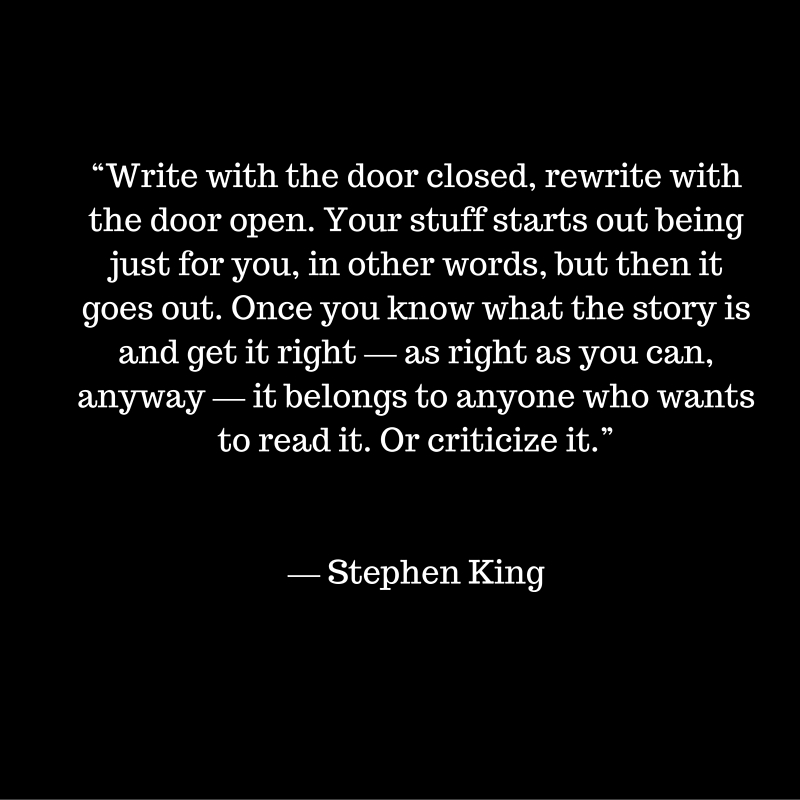
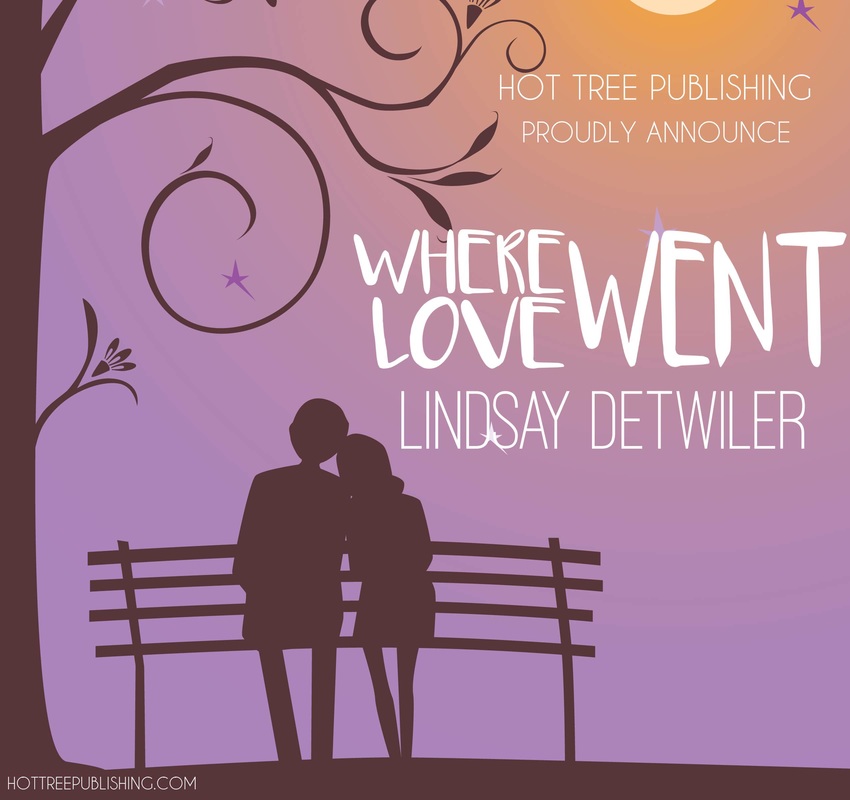
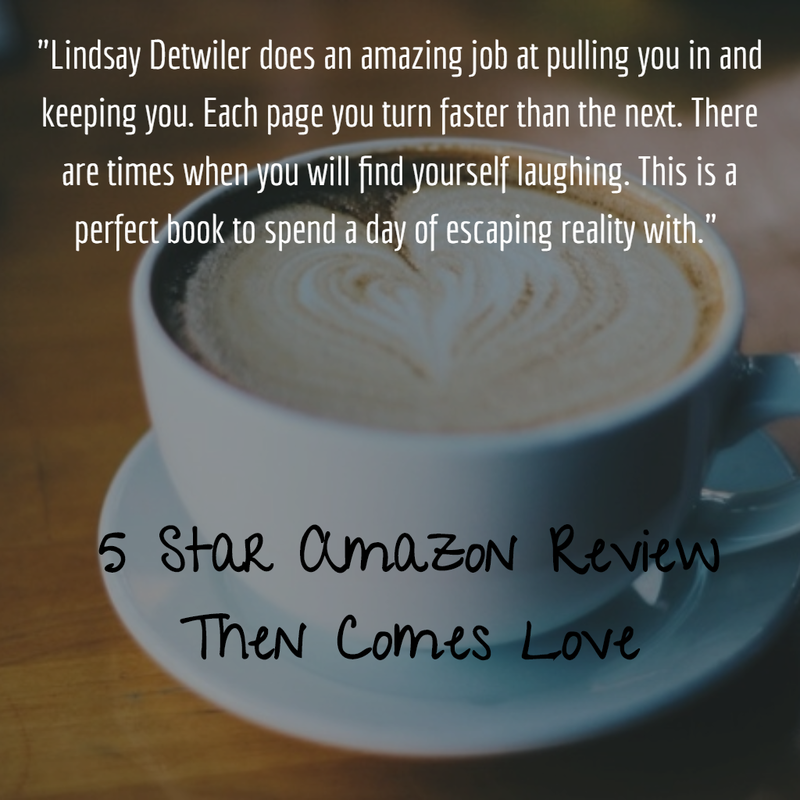
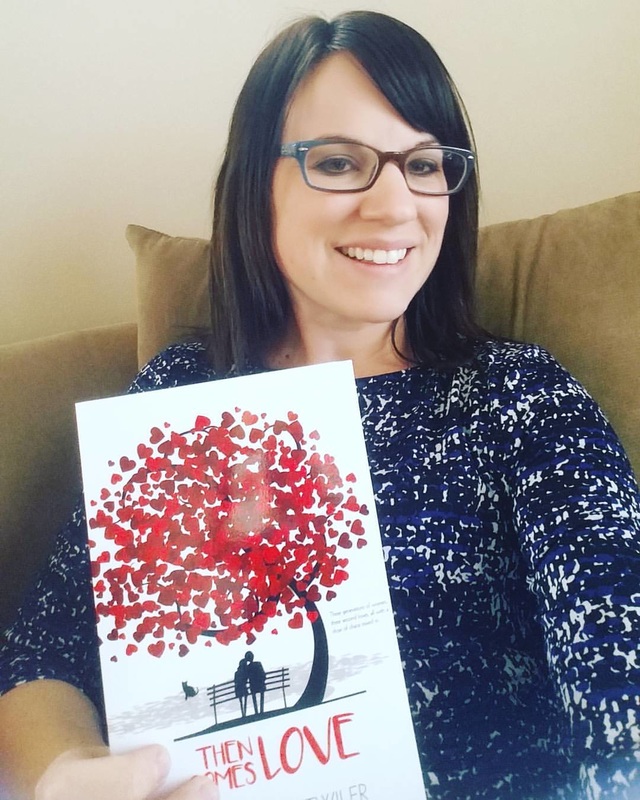
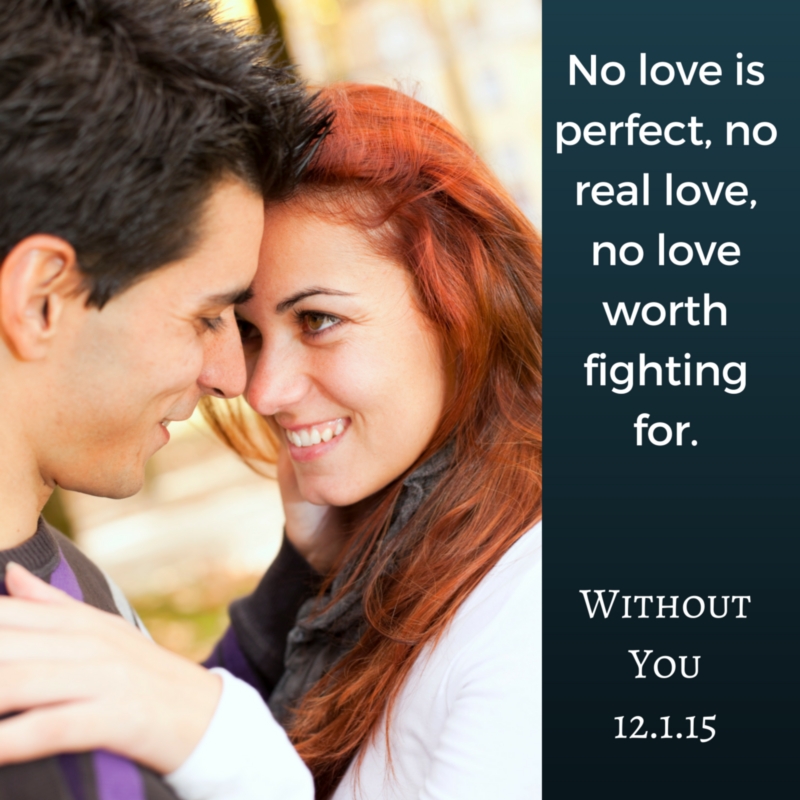
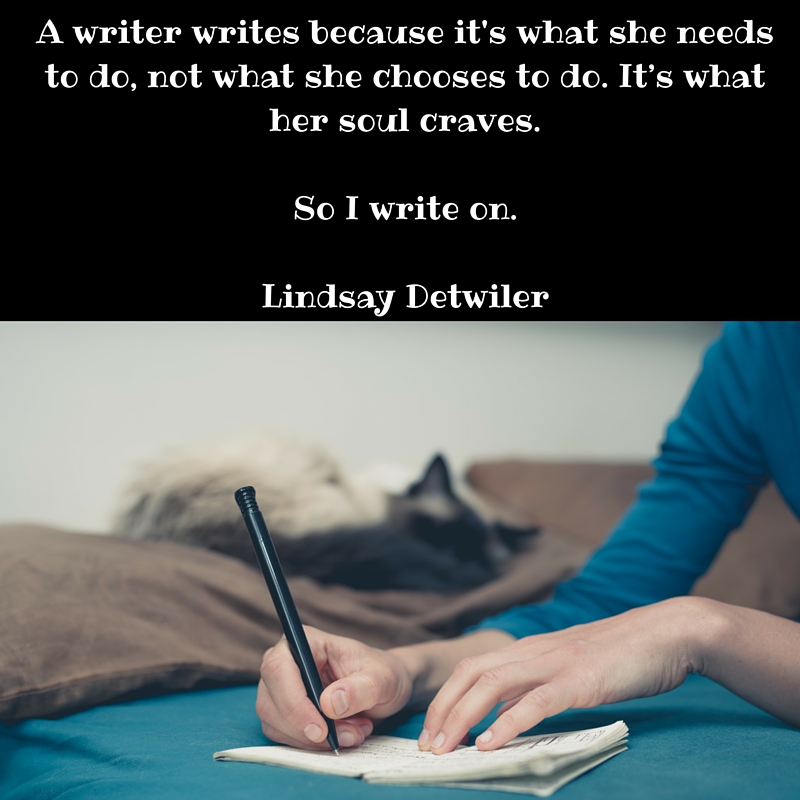
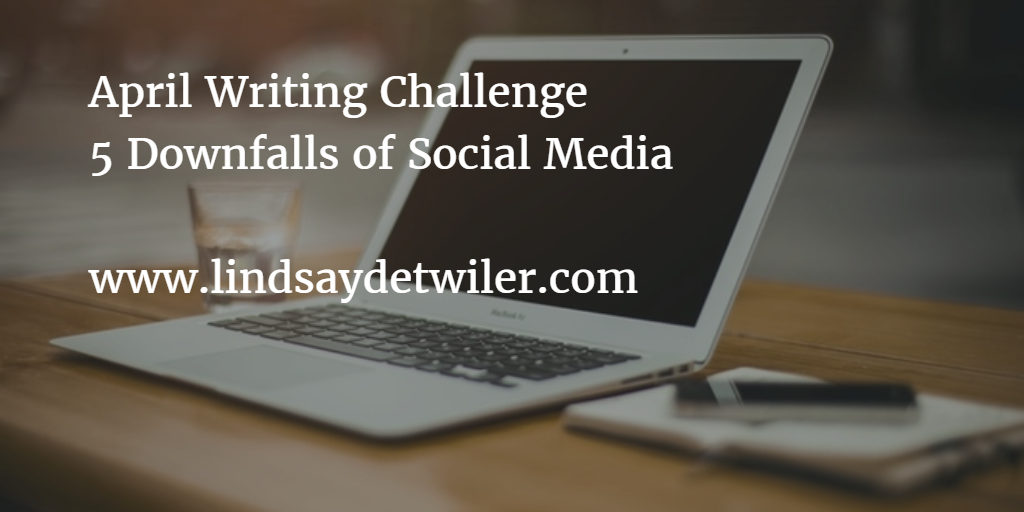
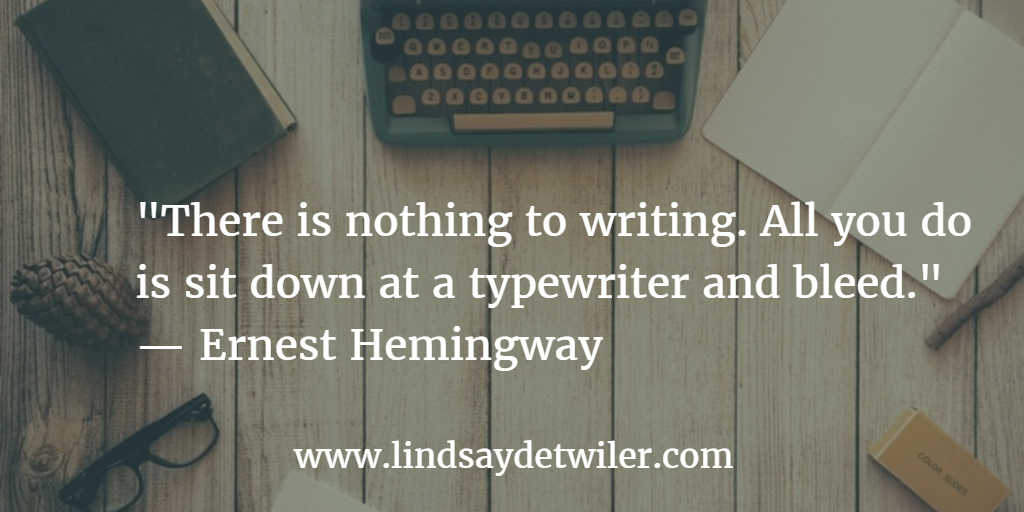
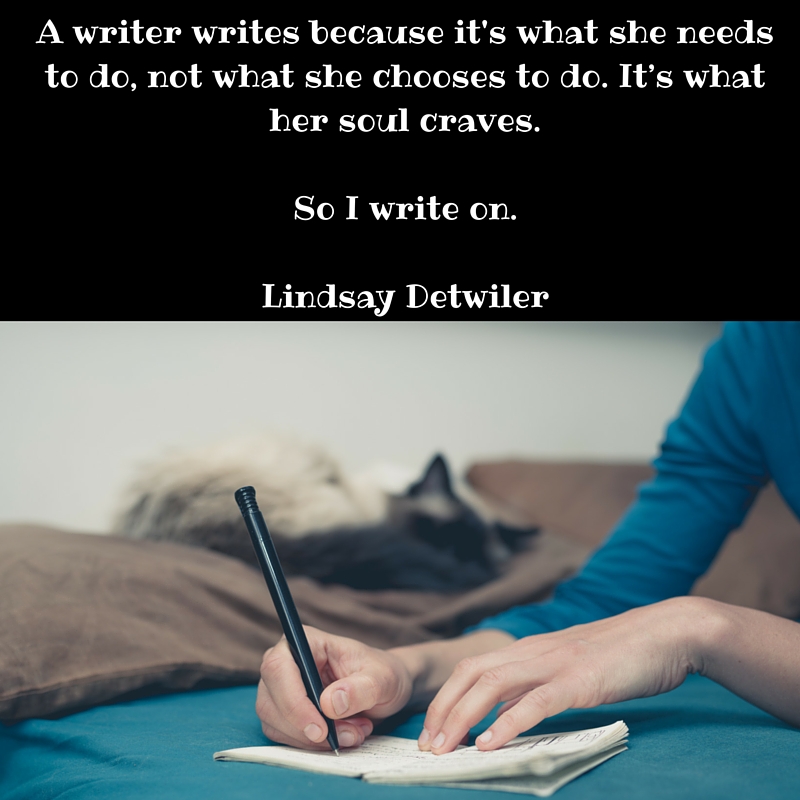
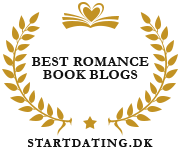


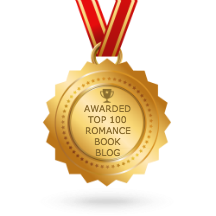
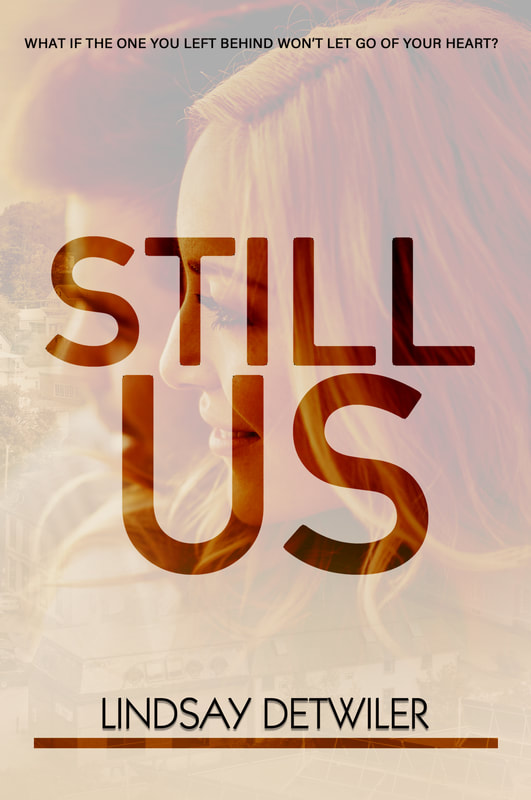
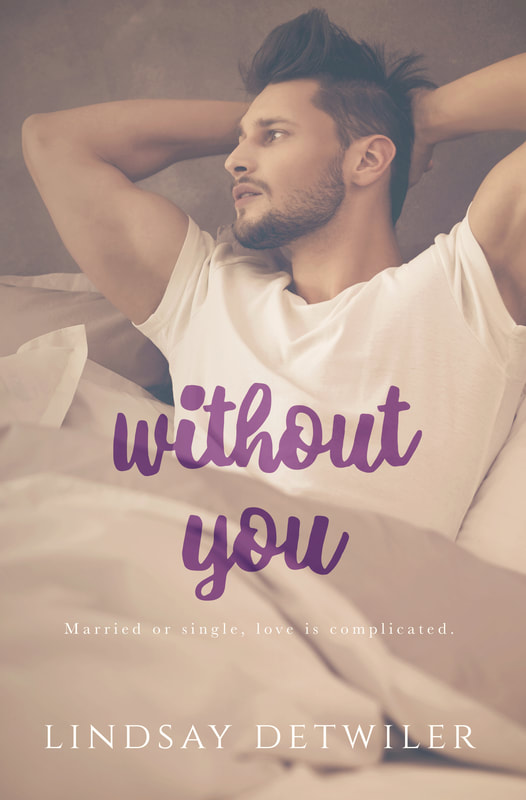
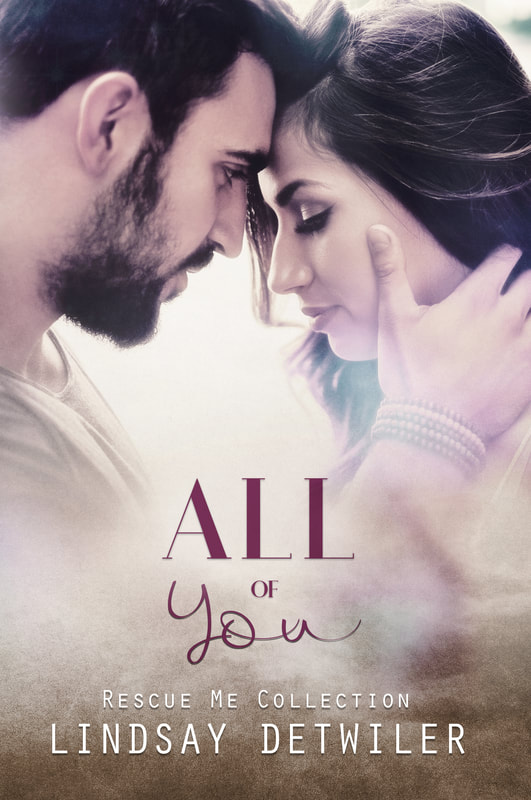
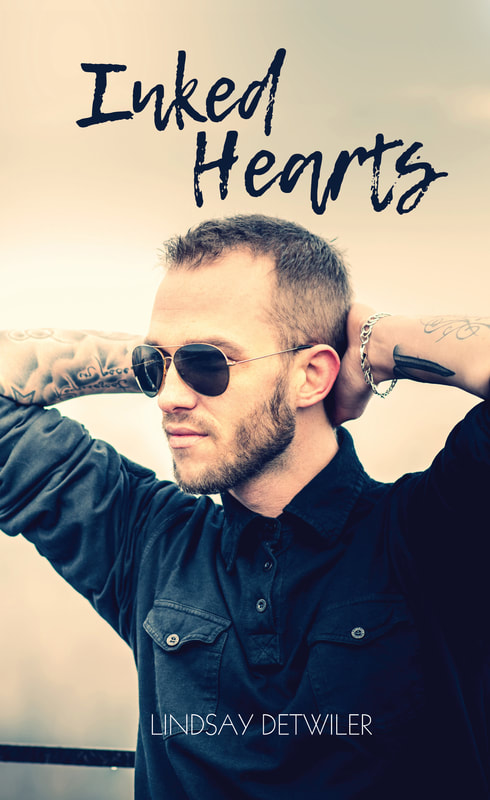
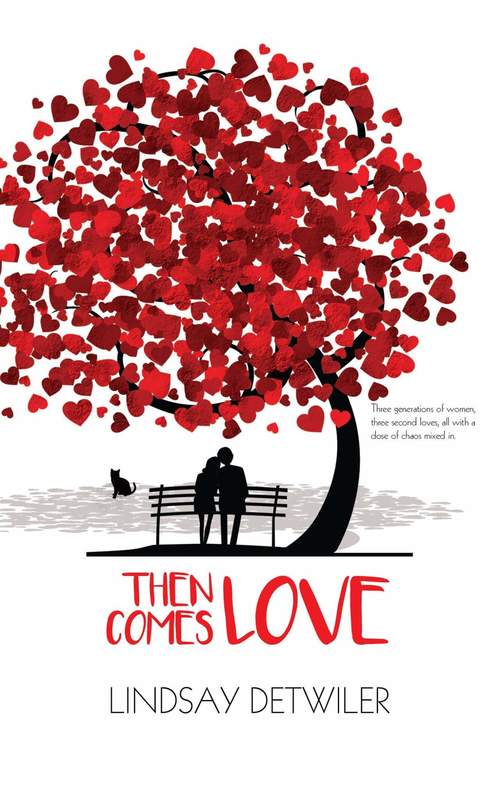
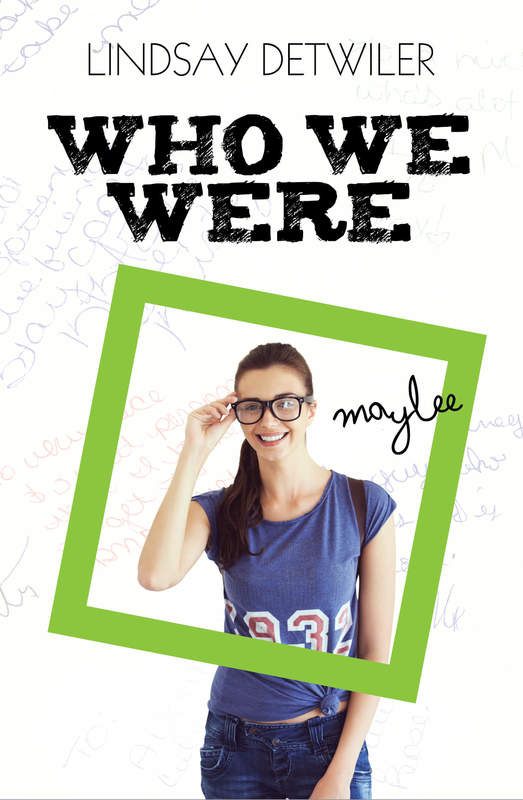
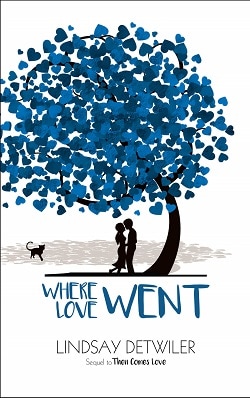
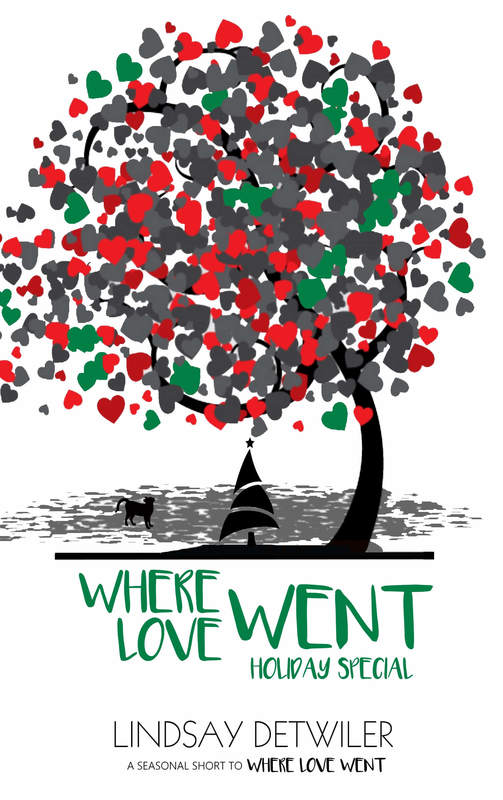
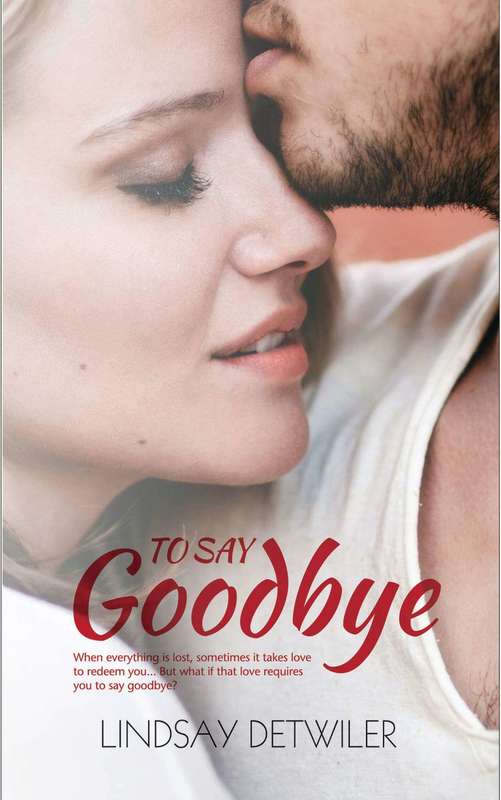
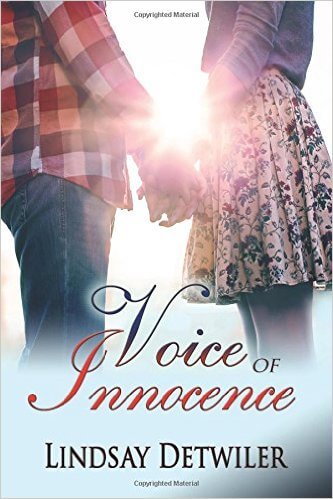
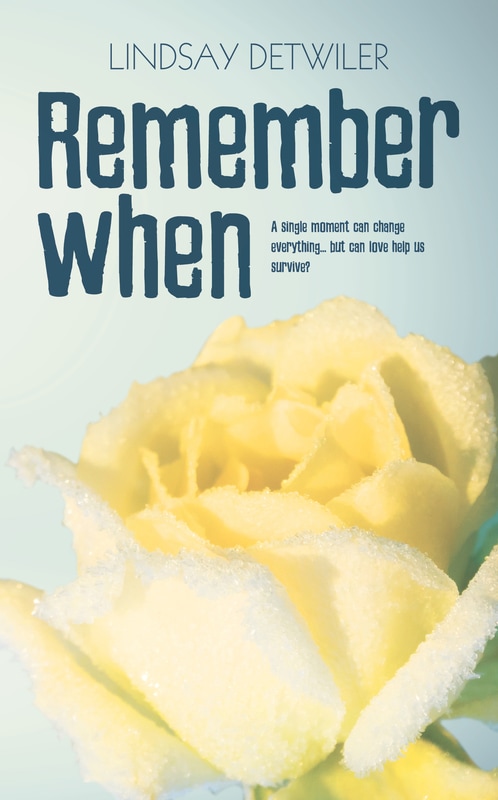
 RSS Feed
RSS Feed